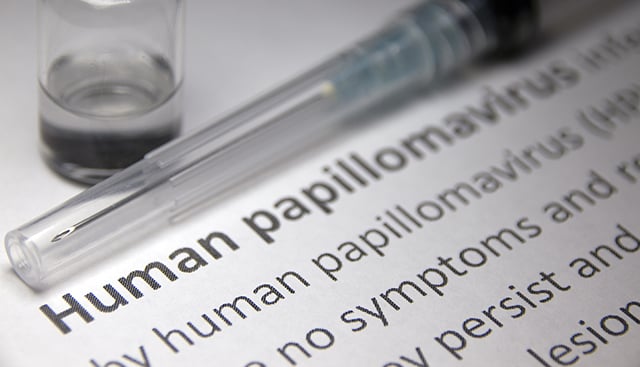Causes & Risk Factors of Cervical Cancer

Cervical cancer is one of the most common types of cancer among women. Fortunately, routine Pap tests play a crucial role in early detection of cervical cancer, and human papillomavirus (HPV) vaccinations can help prevent the development of cervical cancer altogether. At Moffitt Cancer Center, we are dedicated to conducting cutting-edge research and to providing comprehensive care and treatment to help those who are affected by cervical cancer.
What causes cervical cancer?
Cervical cancer originates from abnormal cell changes in the cervix. These changes are often—but not always—triggered by human papillomavirus (HPV) infections. It is essential to note that not all HPV infections result in cervical cancer. Various HPV strains exist, and other factors such as smoking, weakened immune systems and coexisting infections can influence the risk.
While the exact cause of non-HPV-related cervical cancer isn’t fully known, scientific research points to certain factors that contribute to its development:
- DNA mutations – DNA mutations affecting oncogenes and tumor suppressor genes can lead to uncontrolled cellular growth and division.
- Protein interference – HPV's E6 and E7 proteins can undermine the function of tumor suppressor genes, contributing to cell proliferation.

Cervical cancer risk factors
Multiple factors can increase the likelihood of developing cervical cancer—some can be controlled while others are largely out of your hands:
Cervical cancer risk factors you can change
Some of the cervical cancer risk factors that are modifiable include:
- Sexual activity – Early sexual activity (before age 18) or having multiple partners may increase risk of developing cervical cancer.
- Pregnancy history – Women with three or more full-term pregnancies or an early-age first pregnancy are at an elevated risk.
- Birth control usage – Long-term use of oral contraceptives may temporarily increase susceptibility.
- Smoking – Smoking is linked to numerous health conditions, including cervical cancer.
- Previous HPV infection – As mentioned above, HPV is responsible for a large portion of cervical cancer cases. However, the only certain way to avoid contracting HPV is to practice abstinence, which is not practical for most people—though consistent and correct condom usage helps.
Cervical cancer risk factors you can’t change
However, some risk factors are outside of your control, such as:
- Family history – Women with mothers, sisters or daughters who have had cervical cancer are more likely to develop the malignancy themselves.
- Genetic predisposition – Certain genetic factors, though relatively rare, could play a role.
- DES exposure – Women whose mothers were prescribed DES during pregnancy to help prevent miscarriage are at an elevated risk.
Cervical cancer prevention
Taking proactive steps can significantly reduce the risk of cervical cancer:
- Regular Pap tests – Routine screenings help detect abnormal cell changes early, improving treatment outcomes.
- HPV vaccination – The HPV vaccine is a powerful preventive measure, potentially eliminating most cervical cancers. It’s recommended for children aged 11-12, though it can be administered up to the age of 45 in some cases.
- Healthy lifestyle – A diet rich in antioxidants, carotenoids, flavonoids and folate—along with not smoking—can lower the risk of cervical cancer.
- Safe sexual practices – Practicing safe sex and limiting the number of partners can reduce exposure to HPV and therefore lower the chances of developing cervical cancer.
- Maintaining a healthy immune system – Maintaining good overall health and a robust immune system is essential in preventing HPV-related cervical cancer.
Common cervical cancer causes & risk factor FAQs
These FAQs offer more information about the causes and risk factors associated with cervical cancer:
- How to prevent cervical cancer
- What are precancerous cells?
- Can HPV vaccination eliminate cervical cancer?
- Should I get the cervical cancer vaccine?
- What age group is most at risk for cervical cancer?
Get the cervical cancer help you need at Moffitt Cancer Center
At Moffitt Cancer Center, we are at the forefront of cervical cancer research and reatment. Our status as a National Cancer Institute-designated Comprehensive Cancer Center underscores our commitment to advancing scientific understanding and improving patient outcomes. We offer a comprehensive approach to diagnosis and treatment, with a focus on individualized treatment plans.
To learn more about cervical cancer risk factors or to schedule an appointment, contact us at 1-888-663-3488 or complete our new patient registration form. Our dedicated team of experts is ready to guide you towards a healthier future.
References
Risk Factors for Cervical Cancer
What Are the Risk Factors for Cervical Cancer? | CDC
Cervical Cancer Causes, Risk Factors, and Prevention - NCI
Diagnosis
